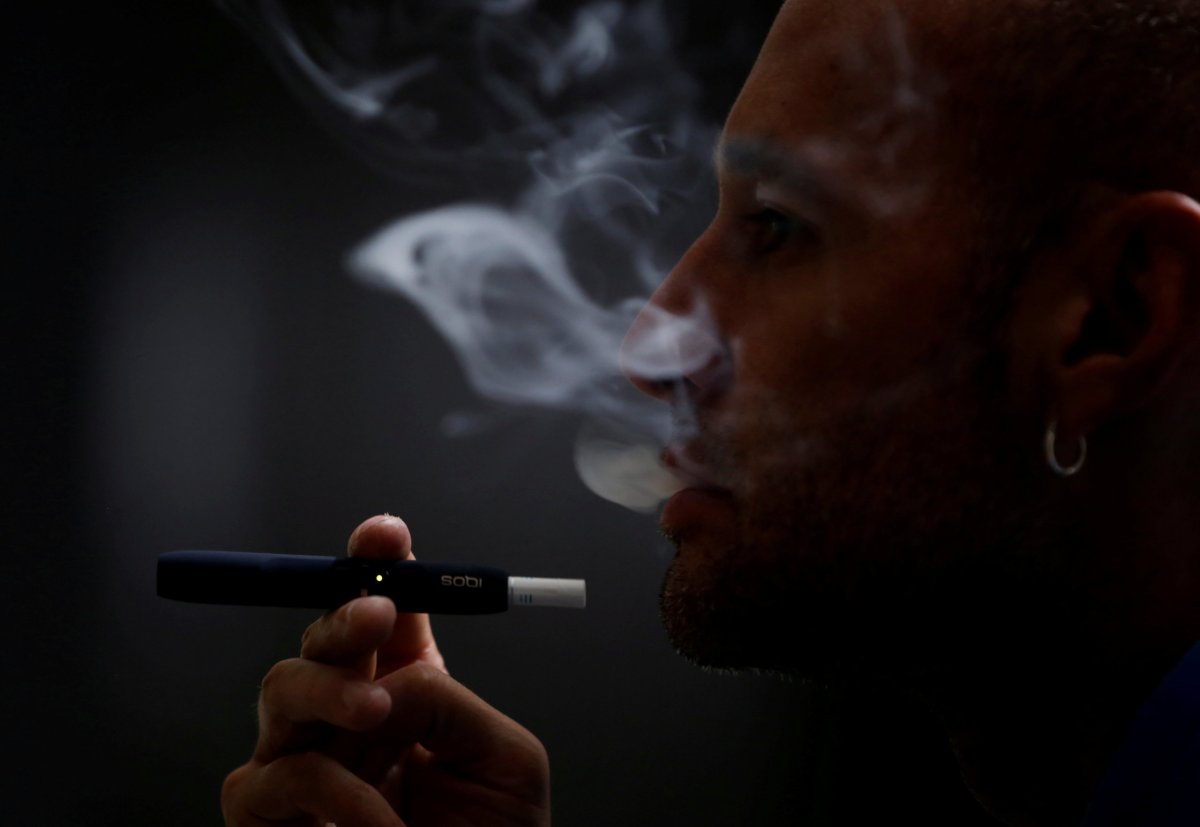By Toni Clarke
(Reuters) – An electronic product made by Philip Morris International Inc that heats rather than burns tobacco contains lower levels of harmful and potentially harmful compounds than cigarettes, a preliminary review by the U.S. Food and Drug Administration (FDA) concluded on Monday.
Laboratory data showed that the aerosol produced by the product, iQOS, can damage cells and affect human tissue, but that the effects “are generally less severe and observed at much higher concentrations,” compared to cigarette smoke.
The reviewers said full results from a pending study would provide more information about the carcinogenic potential of iQOS, but the results are not expected to become available until later this year.
The review comes two days before a meeting of outside advisors to the FDA who will discuss the product and recommend whether it should be allowed on the market. The panel will also decide whether the company should be allowed to claim iQOS is less harmful than cigarettes.
The FDA is not obliged to follow the recommendations of its advisors, but typically does.
Bonnie Herzog, an analyst at Wells Fargo Securities, said the hurdle is high, but she believes the company’s application “has a decent chance of prevailing.”
That is in part because the FDA under Commissioner Scott Gottlieb has committed to a tobacco policy that relies on the availability of reduced-risk products to help smokers obtain nicotine in a less damaging form.
The FDA’s plan, announced last year, “signals its seriousness with regard to supporting the development of a viable market of FDA-approved reduced-risk product alternatives to combustible cigarettes,” Herzog said in a research note
In order to be authorized at all, Switzerland-based Philip Morris and its partner Altria Group Inc must show that the iQOS is “appropriate for the protection of public health,” meaning any benefit to an individual smoker cannot come at the expense of added danger to the population as a whole.
In theory, the agency could allow the product on the market, but not permit the company to specifically market it as less dangerous. Philip Morris hopes to claim iQOS is less risky or less harmful than cigarettes.
Failing that the company would like to claim that the product reduces a smoker’s exposure to harmful compounds compared with cigarettes, a potentially easier hurdle to clear.
The FDA found in its review that by some respiratory and cardiovascular measures, iQOS aerosol exposure produced less damage than cigarette smoke. The reviewers also noted there was little difference seen in the development of certain potentially pre-cancerous lesions in the respiratory tract.
Overall, data from the nonclinical studies suggest that iQOS aerosol has lower toxic potential than cigarette smoke under the conditions used in the tests and for the non-cancer conditions measured.
But they said it is “unclear how the effects observed in treatment groups exposed to iQOS aerosols translate to a potential risk reduction for noncancer-related effects when chronically used by humans.”
(Reporting by Toni Clarke in Washington; editing by G Crosse)





















